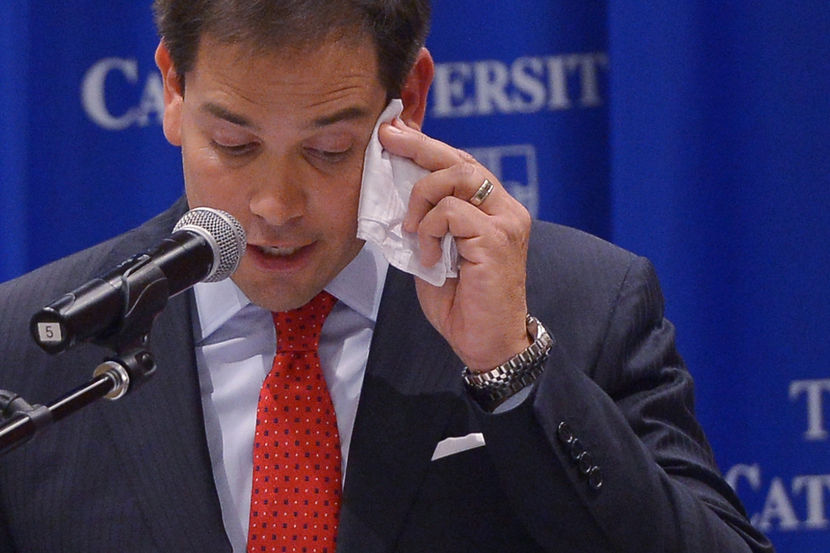Last night, the Republican candidates debated on television screens across the US. We watched with amusement the petty jabs made between candidates. Yet, no candidate outlined a plan to repair our broken healthcare system during the debate. The only reasonable plan that was publicized weeks ago was by Marco Rubio. As a doctor, this plan makes sense and addresses many of the problems inherent in our current healthcare system.
Mr. Rubio points out the need for affordable, quality healthcare in our country and that Obamacare failed in this regards. In my office, I see this played out daily. My patients cannot afford the premiums they are forced to pay under the ACA insurance exchanges. After scraping deep down in their pockets to cover this cost, they learn that they still cannot afford medical care because they now have an atrociously high deductible. Yes, Mr. Rubio is right when he states that Obamacare has evolved from a political mess to a personal disaster for many. In the US, we lead the world in innovation and technology in medicine. But, what good are these medical advancements when most patients cannot afford them?
While individuals are being squeezed under the financial vice of their new enforce medical coverage that doesn’t pay for much of their care, small business will soon feel the same. The IRS could force small businesses to pay fines of over $36,000 per employee per year. As a business owner, I know I cannot afford this in my own small practice. It could literally force me to close my practice. Again, you have to ask how this will serve the American people?
In Rubio’s plan: he highlights 3 points of reform he plans to address:
1. He will devise an “advancable, refundable tax credit” for all Americans to purchase. This will travel with them wherever they work and live. This is truly an idea that will help many patients and make them more empowered consumers in the healthcare system.
2. He plans to reform insurance regulations to “lower costs, encourage innovation, and protect the vulnerable”. While I applaud the intent of this point, I feel it falls short in many regards. First, insurance companies profited greatly off the ACA. They have millions of newly insured paying premiums while they hike up the deductibles they are making the patients responsible to pay. In my own practice of medicine, I am seeing more medications and diagnostic tests being denied for coverage. Additionally, the average compensation of insurance company CEO’s is over $10 million annually. They clearly possess a financial conflict of interest to deny care. Yes, we need health insurance reform but we need a definite multi-stepped plan on how to achieve this. And we need increasing over-sight of insurance companies. As it currently stands, they are free to over-ride doctors’ treatment decisions based purely on financial considerations. American patients deserve the highest quality of care, NOT what the insurance company determines is the bare minimum to drive their bottom line.
3. He plans to save and strengthen Medicare and Medicaid by “placing them on fiscally sustainable paths”. I believe the government failed to do this for decades. I applaud the intention of this point but, again, we need a more definite plan. As we debate the necessity of doing this, doctors across the US are opting out of these plans creating a crisis of access.Sure, these programs need reform, but what good will they be if doctors no longer agree to accept these programs?
I applaud Marco Rubio’s plan to fix our broken healthcare system. I think it a very good step on the road to true reform and repair. But, we need more. We need to call people on the carpet, from crooked politicians to corrupt CEO’s. As a doctor, I and my peers are finding it hard to continue practicing medicine and provide our patients with the highest quality care. Yes, this is a beginning but far from an ending, distant from true reform. Mr. Rubio, are you ready to take the plunge into the depths of the broken system and repair it from the inside out? Or is this merely another political promise that will be left on the campaign trails of Presidential elections of times long past?
 Copyright secured by Digiprove © 2015 Linda Girgis, MD, FAAFP
Copyright secured by Digiprove © 2015 Linda Girgis, MD, FAAFP


